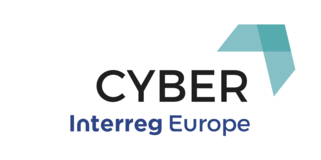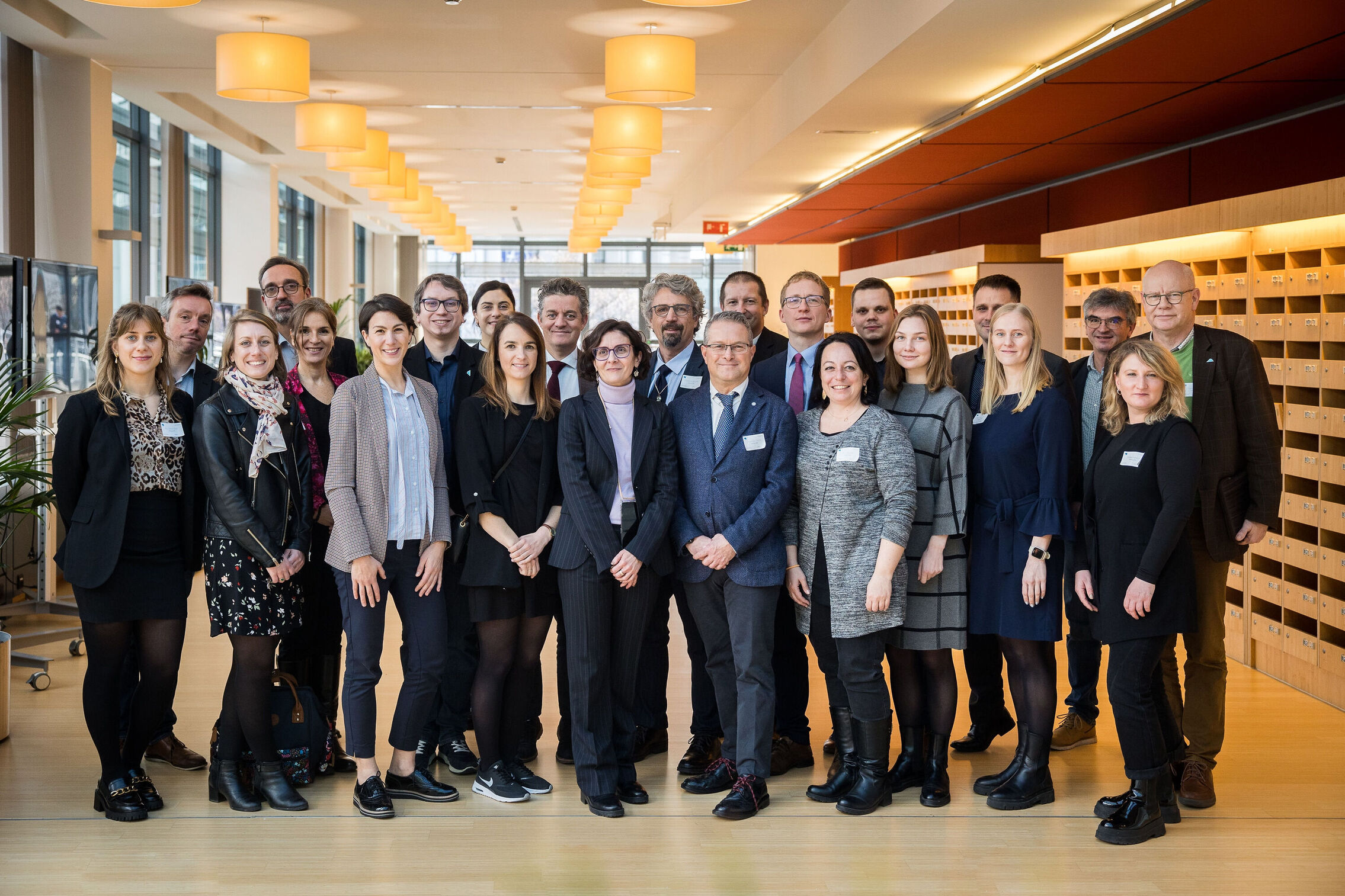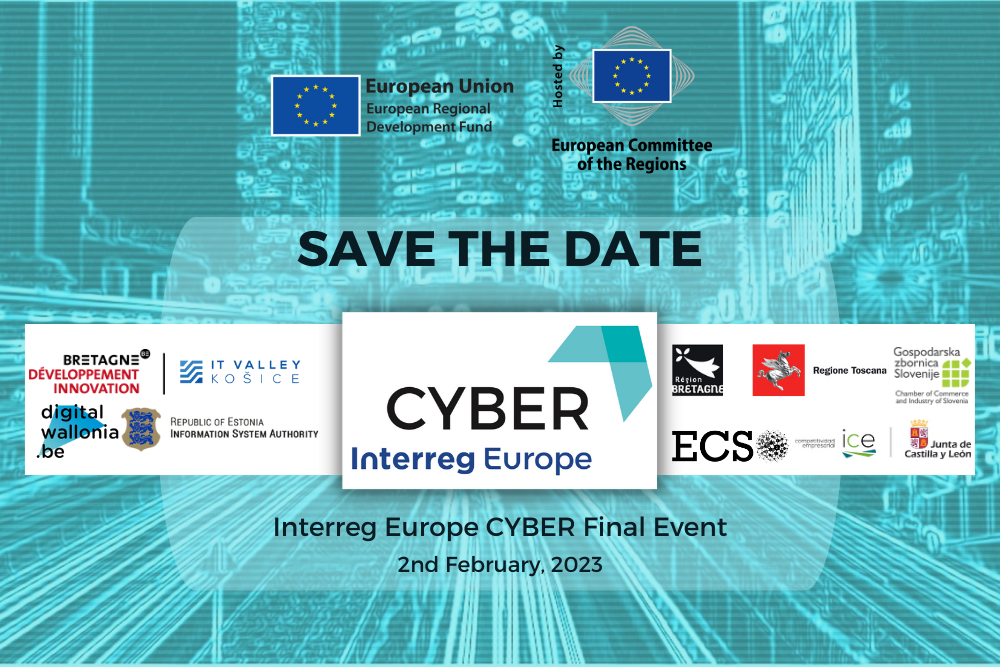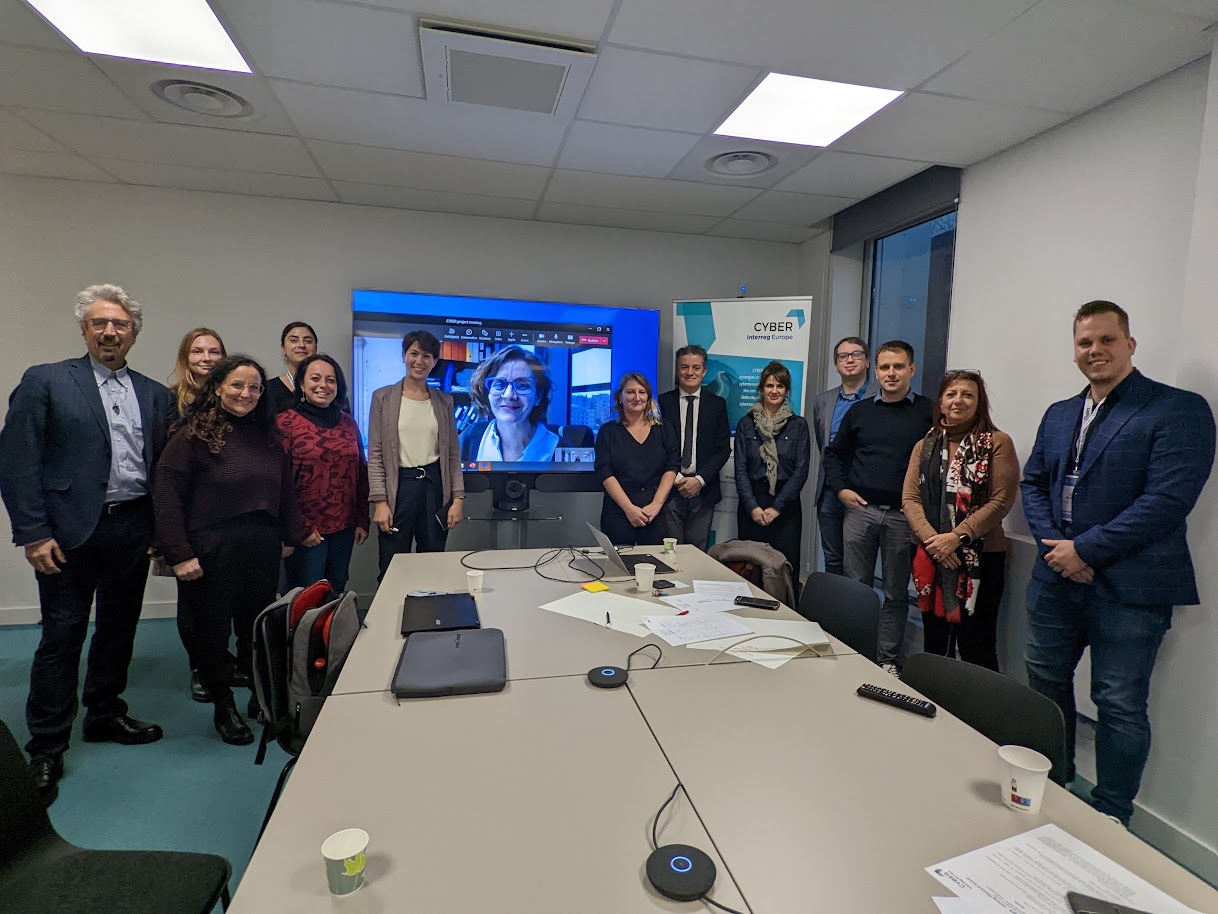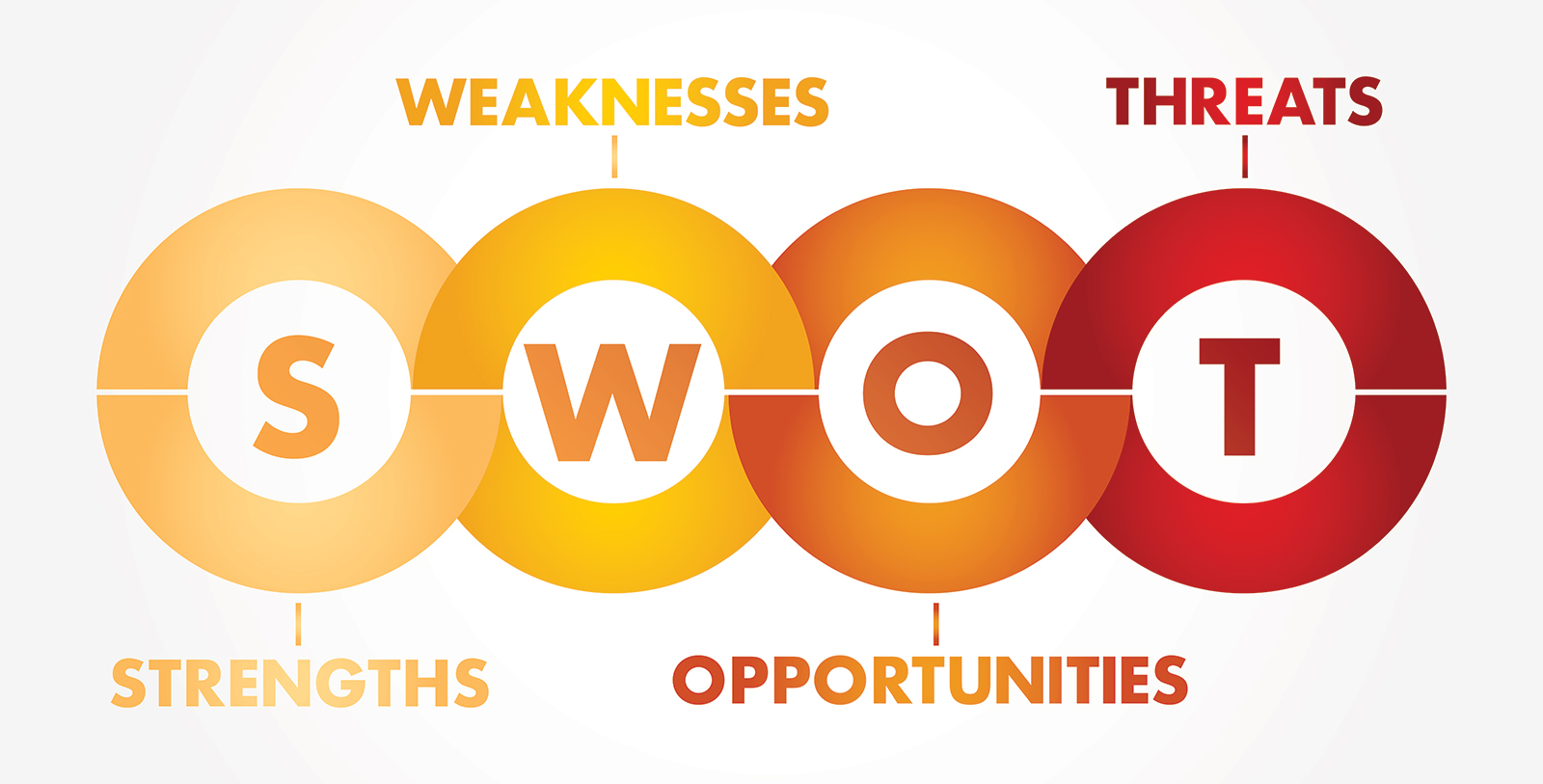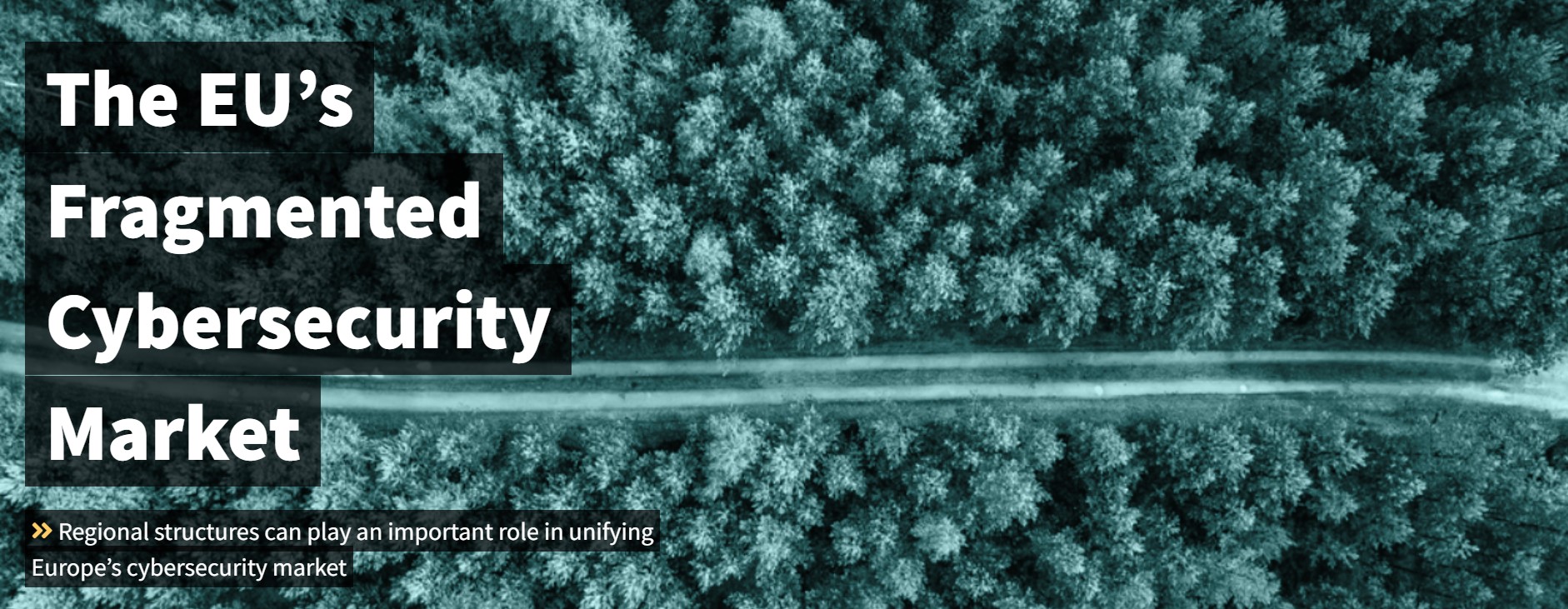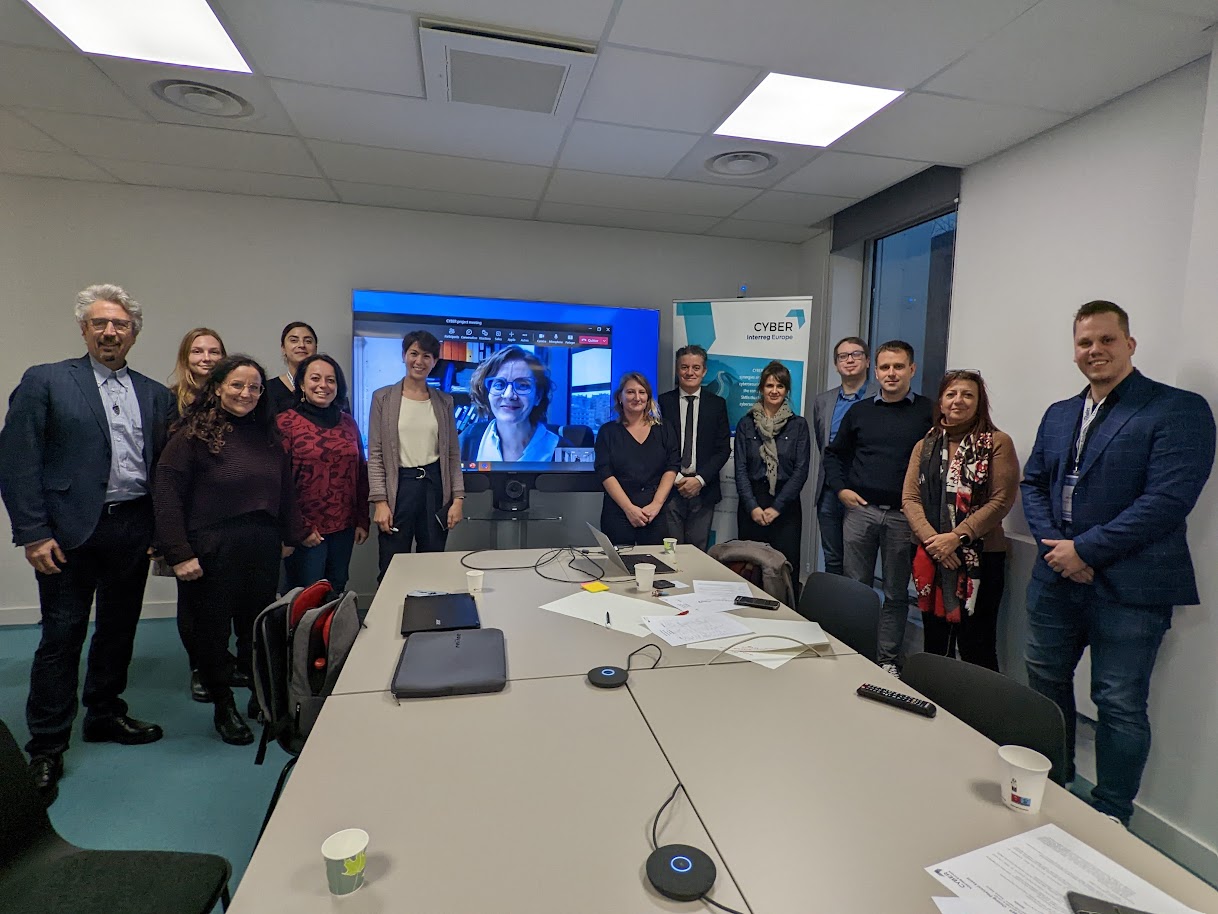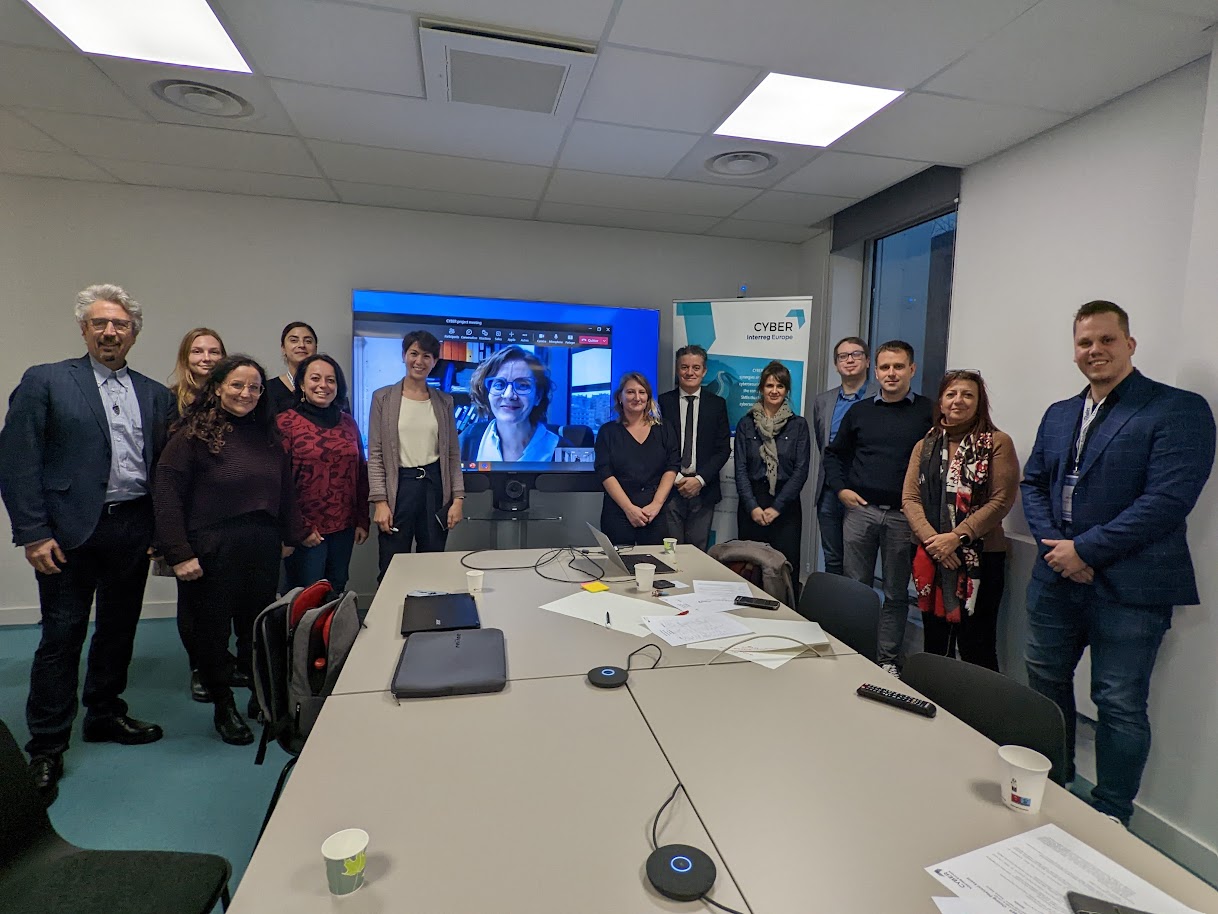The 4th Interreg Europe CYBER project meeting, organised by the Institute for Business Competitiveness of Castilla y Léon (ICE), took place on 21-22 October in León, Spain.
The first day of the meeting focused on the presentation of the rich cybersecurity ecosystem of Castilla y Léon and started with an overview of the regional strategy and policy initiatives ongoing at the regional level in the field of cybersecurity. In the morning, regional cybersecurity players representing the business sector, such as Smartfense, C4IN (ElevenPaths-Telefonica), Puffin Security and Proconsi, have been introduced and had a chance to present their technology solutions. It was particularly interesting to listen to the experience and feedback of those companies that have benefitted from the support of the Acceleration programme running in the region and dedicated to cybersecurity.

The visit continued with the presentation of the activities of the Spanish National Cybersecurity Institute (INCIBE), which is based in Léon. A special focus was given to its two initiatives: ‘Protect Your Business’ and ‘Internet Segura For Kids’ (is4k). Castilla y Léon has also launched a dedicated Digital Innovation Hub, the Cybersecurity Innovation Hub, that provides a range of services for the support of business digitalisation (e.g. demo space, talent recruitment, training, etc.). A presentation of the programme was delivered by the Association of Innovative Companies (AEI) in Cybersecurity and Advanced Technologies, which is one of the partners in the project.
CYBER project partners also had a chance to visit the University of León (Escuela De Ingenierías Industrial e Informática y Aeroespacial, ULE) and the Cybersecurity training Labs (IoT ULE - Schneider Electric Lab). The interaction with local stakeholders finished with the visit to the Supercomputing Centre of Castilla y León (SCAYLE), created by Junta de Castilla y León and the University of León.
During the second day of the meeting, participants attended 13ENISE, a major annual international meeting on security, gathering top experts, investors and stakeholders in the field. Interregional exchange activities focused on the major challenge of lack of talents, which has been identified as one of the main barriers to the competitiveness of cybersecurity SMEs across Europe.

Regions have a key role to play in addressing this challenge: approaches can vary from developing a comprehensive training offer to running a visa programme, to attract foreign talents. By taking into account the different steps of a talent journey, project partners shared the initiatives put in place by regions, as well as the needs for further improvement. Project partners have also started working on and shared the first steps of their policy improvement process, which will be the focus activity of the coming months.
The next project partners meeting will take place at the beginning of April in Ljubljana, Slovenia and will be hosted by the Chamber of Commerce and Industry of Slovenia.
